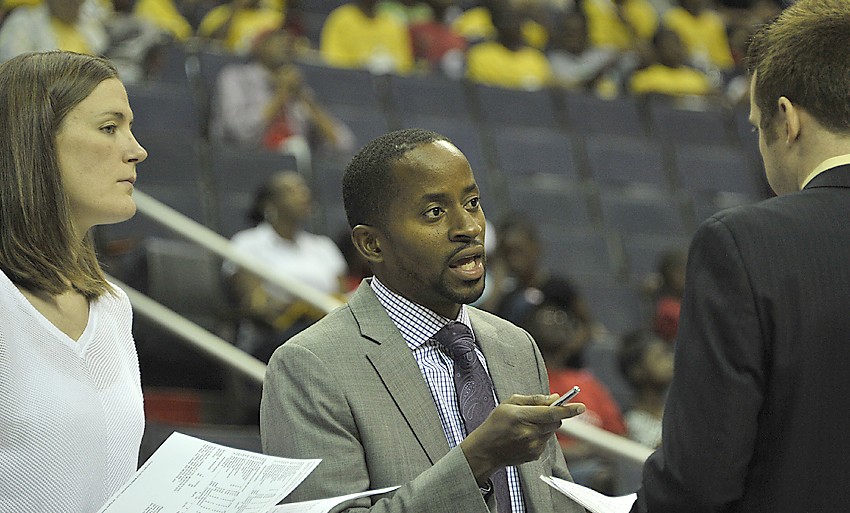I’ve said it before and I’ll say it again: I’ve been blessed with a beautiful burden. Coaching is my opportunity to give back to – and thru – a game that’s given me so much. Awakening possibilities in others is my life’s blood.

When John Leonzo contacted me to do an interview on decision training and coach development, I jumped at it. I’ve been propped up by so many, that I’m glad when opportunities arise for me to share what I’ve learned with others.
Listen in as we discuss developing basketball IQ, how decision training can be built into a practice, games approach, and the three crucial skills all players must possess to be effective at any level of play.
Highlights:
In this interview, John Lenzo and I discuss:
- Why I coach
- The three (3) skills all basketball players must have – regardless of position
- How to develop ‘basketball IQ’ and teach decision making
- An ideal practice and how it would be structured
- Thoughts on small sided games and a constraints-led approach to coaching
- What to do if one could only practice three (3) times a week for 15 minutes per session
- What I do to continually learn
- The three (3) essentials skills that coaches must possess
- Influences on my coaching philosophy and style
Quotes and Takeaways
- Players must have the ability to play at speed, with vision, against contact. At any given position, vision when combined with technique is the great equalizer.
Vision impacts anticipation. Anticipation impacts decision making. So, awareness (vision) is the first step toward ‘basketball quickness’. I’m not just talking about physical speed, but also nimble thinking.
- If your players can’t play on balance, at different speeds, with vision, against contact, they can’t play. [Related: Nothing Off Balance Counts.]
- “Skills are grown not given.” —Trevor Ragan (Train Ugly) Lessons are learnt not taught.
- We create the conditions for someone to develop their decision making by manipulating task, space, time, rules, environment, and individual constraints … that’s the art and science of it.
- Teach through the games—both in practice and the actual competitions themselves.
- Orient perspective toward process-driven performance indicators rather than outcome (e.g. shot quality, transition defense).
- Coaches must persist through C.R.A.P. (criticism, rejection, *ssholes, pressure).
/sef.
#thankthepasser: John Leonzo’s YouTube channel is bursting at the seem with insights on coach and player development, the science of motor learning, here are some more video interviews worth watching: Tom Black (on Growth Mindset, Motor Learning), John Kessel (on Specificity and Whole Learning), and Mark Upton (on Skill Acquisition).